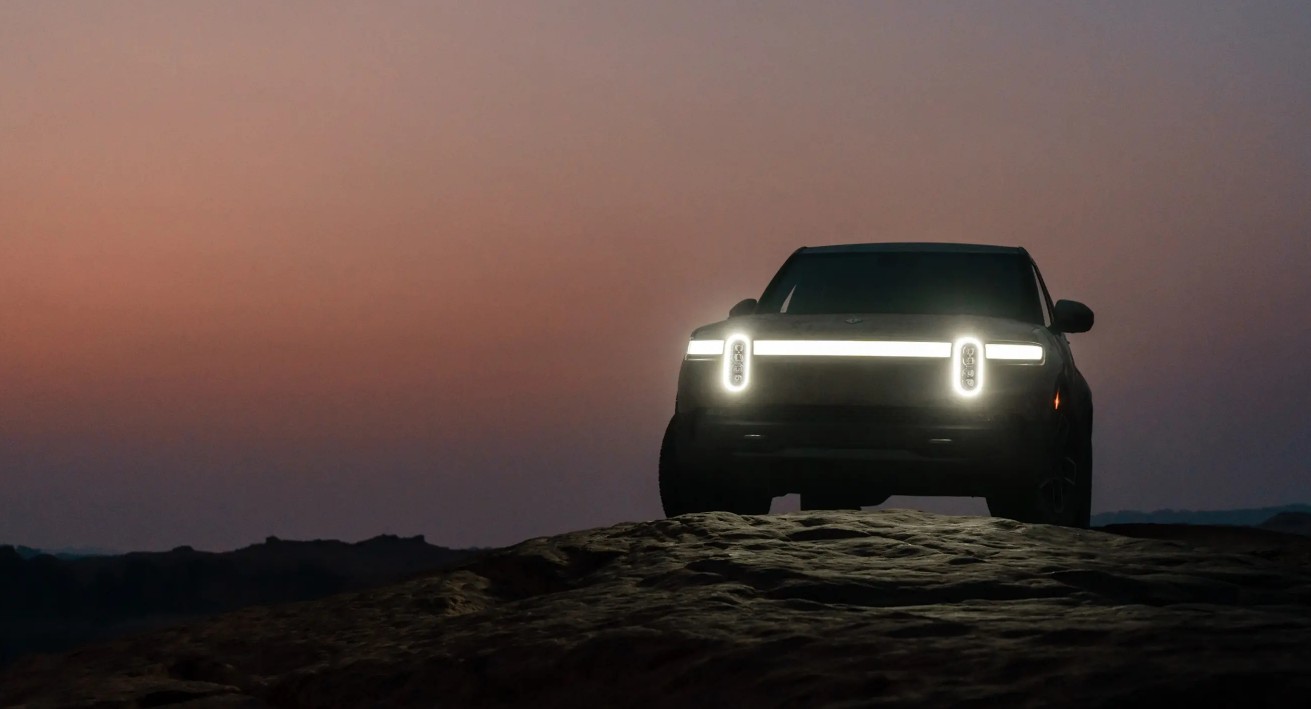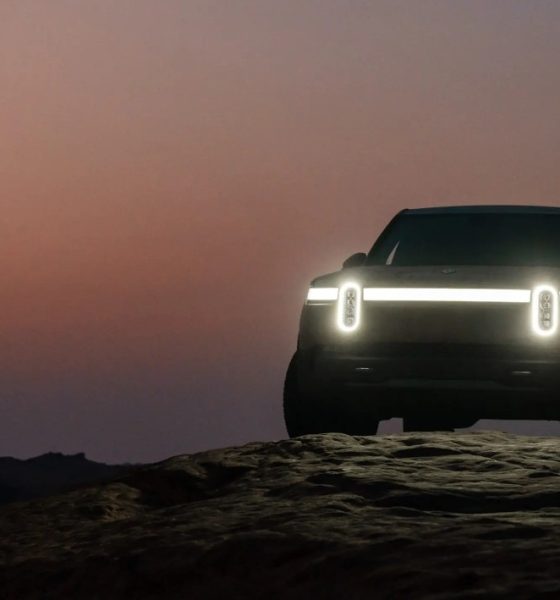Rivian Automotive Inc. is expected to price its initial public offering (IPO) later today, November 9, 2021. Morgan Stanley, Goldman Sachs, and J.P. Morgan currently stand as Rivian’s underwriters for the company’s debut. And based on filings with the Securities and Exchange Commission (SEC), Rivian is looking to enter the public markets in a big way — and it is setting its ambitions very high.
Target Valuation
Rivian has disclosed that it is targeting a valuation above $65 billion in its IPO, with shares priced between $72 and $74. Such a valuation is ambitious, as it would make Rivian’s market cap just a bit lower than veterans such as General Motors ($84.82 billion) and Ford Motor Company ($79.65 billion), the latter being a key investor in the truck maker. Similar to fellow electric vehicle maker Tesla, which currently reached a market cap above of over $1 trillion, Rivian’s valuation target is founded on the idea that the company may see a meteoric rise in the coming years.
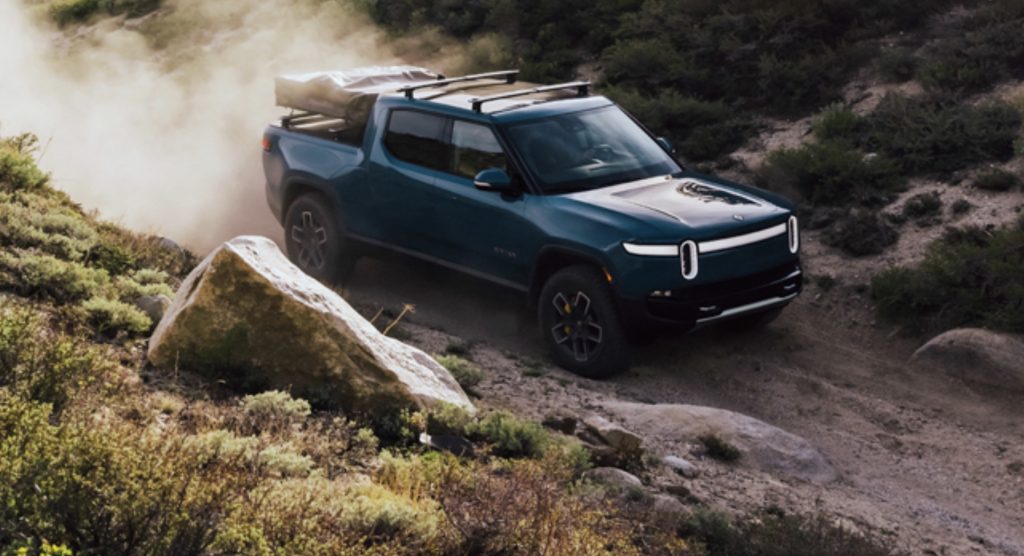
If Rivian’s shares end up selling at the top of their marketed range, the company could make history as the seventh-biggest US IPO on record, according to Bloomberg. It would also overtake longtime players in the auto segment, such as Japanese carmakers Honda Motor Co., which has a market cap of $53 billion, and French automaker Renault SA, which is valued at a conservative $11 billion.
The Finances So Far
Rivian’s S-1 filing with the SEC has provided a glimpse of the company’s finances so far. Just as expected, and similar to fellow electric vehicle makers that are just starting out, Rivian is currently burning cash, with heavy investments in R&D and high operating costs. This is likely due to the fact that the company is still learning the ropes when it comes to mass-producing its three vehicle offerings, one of which has an order for 100,000 units from Amazon, the world’s premier e-commerce site.
Rivian currently employs over 8,000 people across multiple facilities in Arizona, California, Michigan, Illinois, Vancouver, Canada, and the UK. And as the company approached the production of the R1T pickup truck and R1S SUV, its losses grew. Rivian posted a net loss of $994 million from January to June 2021, more than double the $377 million net loss it posted for the first half of 2020. Rivian’s R&D expenses are also on the rise, with the company spending $683 million in Q1 and Q2 2021. In comparison, its R&D cost for 2020 stood at $766 million. Despite this, Rivian still has about $3.6 billion in cash on its balance sheet.
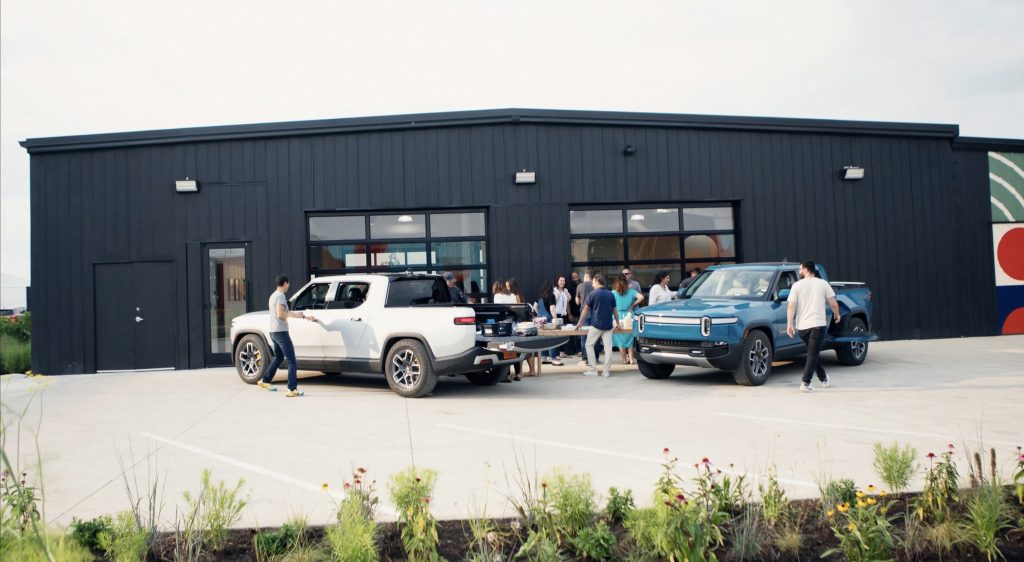
What Analysts are Saying
Rivian is quite unique among EV startups today because its already has a sure customer in Amazon, which has ordered 100,000 units of an all-electric delivery van. That being said, New Street Research analyst Pierre Ferragu stated in a note on Monday that Rivian may end up facing a “natural ceiling” of 300,000 to 400,000 units per year, partly due to the price range of its consumer vehicles, the R1T pickup truck and the R1S SUV. The R1T currently starts at $67,500 for its base model, while the R1S starts at $70,000.
“Above $70,000, the global addressable market for Rivian’s SUV and pickup is less than 1.5 million units, and it will be a crowded space,” Ferragu wrote.
Ivan Drury, a senior analyst at Edmunds, highlighted that Rivian may face an uphill climb when ramping its first vehicles, especially considering that the chip crisis is still ongoing. “It’s difficult enough for established automakers, let alone a new one. Couple that with this new issue the entire industry is dealing with, the chip crisis, that just adds another layer of complexity,” Drury noted.
Rivian’s Production Plans
Recent reports have noted that Rivian is currently focusing its resources on delivering the first batch of its Amazon delivery vans. This makes sense considering the volume of orders it has received from the e-commerce giant, but this strategy could also result in the R1T and R1S being ramped at a more deliberate pace. So far, Rivian has noted that it has received just over 55,000 pre-orders for the R1T and R1S. And since starting deliveries of the R1T, the company has only delivered 156 units of the all-electric pickup truck, “nearly all” of them to Rivian employees.
Rivian’s SEC filing has provided a bit more detail about the R1T and R1S’ rather deliberate ramp. According to the document, the company expects to fill its pre-order backlog of approximately 55,400 R1 vehicles by the end of 2023. Previous reports also note that Rivian is expected to deliver the first 10,000 units of its Amazon delivery vans by the end of 2022, with the entire 100,000-unit order being completed by the end of the decade.
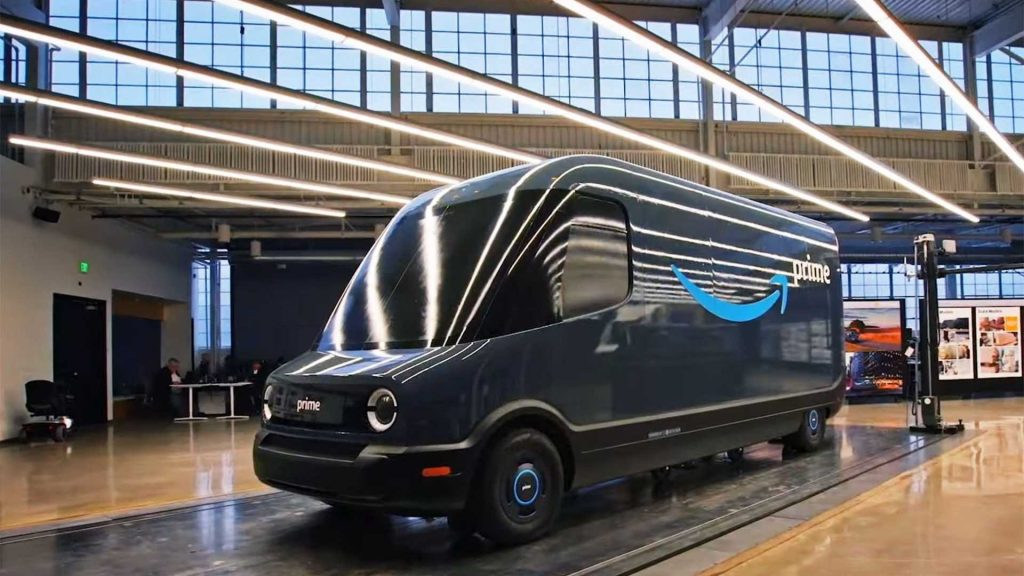
Legal Challenges to Date
Similar to other automakers, Rivian is also involved in some legal challenges. Among the more notable ones involve fellow EV maker Tesla, which has filed a suit against Rivian last year over the alleged theft of intellectual property related to recruitment, bonus and compensation plans for sales personnel, and manufacturing project management systems. A later lawsuit from Tesla also alleged that the truck maker was acquiring core technology related to its upcoming 4680 cells, which was deemed by the Silicon Valley-based company as the “most essential element for any electric vehicle.”
More recently, Laura Schwab, who was the first female President in luxury automaker Aston Martin’s history, also filed a suit against Rivian over alleged gender discrimination. Schwab served as Rivian’s Vice President of Sales and Marketing during her tenure with the company. But according to the former Rivian executive, she was routinely excluded from meetings despite her experience in the auto industry, and her warnings about the R1T and R1S’ pricing and public targets were largely ignored. Finally, Schwab noted that she was terminated by Rivian just before it went public, which effectively made her lose “millions of dollars in unvested equity on the eve of the company’s IPO.”
Conclusion
With electric vehicle maker Tesla joining the trillion-dollar club, numerous investors are now looking towards the “next Tesla.” And while not all EV startups have succeeded — hydrogen truck company Nikola is a good cautionary tale — companies like Rivian and Lucid Motors do seem to have the makings of a legitimate, and potentially profitable long-term business. This was something highlighted by Pitchbook senior mobility analyst Asad Hussain, who noted that “Rivian’s premium market valuation reflects its ownership of the entire value chain and freedom to innovate without dealing with stranded assets. Between Rivian and Lucid, the market finally has credible candidates for ‘the next Tesla.”
Would you consider investing in Rivian? Sound off in the comments below.
Don’t hesitate to contact us with news tips. Just send a message to tips@teslarati.com to give us a heads up.

Investor's Corner
Tesla gets tip of the hat from major Wall Street firm on self-driving prowess
“Tesla is at the forefront of autonomous driving, supported by a camera-only approach that is technically harder but much cheaper than the multi-sensor systems widely used in the industry. This strategy should allow Tesla to scale more profitably compared to Robotaxi competitors, helped by a growing data engine from its existing fleet,” BoA wrote.

Tesla received a tip of the hat from major Wall Street firm Bank of America on Wednesday, as it reinitiated coverage on Tesla shares with a bullish stance that comes with a ‘Buy’ rating and a $460 price target.
In a new note that marks a sharp reversal from its neutral position earlier in 2025, the bank declared Tesla’s Full Self-Driving (FSD) technology the “leading consumer autonomy solution.”
Analysts highlighted Tesla’s camera-only architecture, known as Tesla Vision, as a strategic masterstroke. While technically more challenging than the multi-sensor setups favored by rivals, the vision-based approach is dramatically cheaper to produce and maintain.
This cost edge, combined with Tesla’s rapidly expanding real-world data engine, positions the company to scale robotaxis far more profitably than competitors, BofA argues in the new note:
“Tesla is at the forefront of autonomous driving, supported by a camera-only approach that is technically harder but much cheaper than the multi-sensor systems widely used in the industry. This strategy should allow Tesla to scale more profitably compared to Robotaxi competitors, helped by a growing data engine from its existing fleet.”
The bank now attributes roughly 52% of Tesla’s total valuation to its Robotaxi ambitions. It also flagged meaningful upside from the Optimus humanoid robot program and the fast-growing energy storage business, suggesting the auto segment’s recent headwinds, including expired incentives, are being eclipsed by these higher-margin opportunities.
Tesla’s own data underscores exactly why Wall Street is waking up to FSD’s potential. According to Tesla’s official safety reporting page, the FSD Supervised fleet has now surpassed 8.4 billion cumulative miles driven.
Tesla FSD (Supervised) fleet passes 8.4 billion cumulative miles
That total ballooned from just 6 million miles in 2021 to 80 million in 2022, 670 million in 2023, 2.25 billion in 2024, and a staggering 4.25 billion in 2025 alone. In the first 50 days of 2026, owners added another 1 billion miles — averaging more than 20 million miles per day.
This avalanche of real-world, camera-captured footage, much of it on complex city streets, gives Tesla an unmatched training dataset. Every mile feeds its neural networks, accelerating improvement cycles that lidar-dependent rivals simply cannot match at scale.
Tesla owners themselves will tell you the suite gets better with every release, bringing new features and improvements to its self-driving project.
The $460 target implies roughly 15 percent upside from recent trading levels around $400. While regulatory and safety hurdles remain, BofA’s endorsement signals growing institutional conviction that Tesla’s data advantage is not hype; it’s a tangible moat already delivering billions of miles of proof.
News
Tesla to discuss expansion of Samsung AI6 production plans: report
Tesla has reportedly requested an additional 24,000 wafers per month, which would bring total production capacity to around 40,000 wafers if finalized.

Tesla is reportedly discussing an expansion of its next-generation AI chip supply deal with Samsung Electronics.
As per a report from Korean industry outlet The Elec, Tesla purchasing executives are reportedly scheduled to meet Samsung officials this week to negotiate additional production volume for the company’s upcoming AI6 chip.
Industry sources cited in the report stated that Tesla is pushing to increase the production volume of its AI6 chip, which will be manufactured using Samsung’s 2-nanometer process.
Tesla previously signed a long-term foundry agreement with Samsung covering AI6 production through December 31, 2033. The deal was reportedly valued at about 22.8 trillion won (roughly $16–17 billion).
Under the existing agreement, Tesla secured approximately 16,000 wafers per month from the facility. The company has reportedly requested an additional 24,000 wafers per month, which would bring total production capacity to around 40,000 wafers if finalized.
Tesla purchasing executives are expected to discuss detailed supply terms during their visit to Samsung this week.
The AI6 chip is expected to support several Tesla technologies. Industry sources stated that the chip could be used for the company’s Full Self-Driving system, the Optimus humanoid robot, and Tesla’s internal AI data centers.
The report also indicated that AI6 clusters could replace the role previously planned for Tesla’s Dojo AI supercomputer. Instead of a single system, multiple AI6 chips would be combined into server-level clusters.
Tesla’s semiconductor collaboration with Samsung dates back several years. Samsung participated in the design of Tesla’s HW3 (AI3) chip and manufactured it using a 14-nanometer process. The HW4 chip currently used in Tesla vehicles was also produced by Samsung using a 5-nanometer node.
Tesla previously planned to split production of its AI5 chip between Samsung and TSMC. However, the company reportedly chose Samsung as the primary partner for the newer AI6 chip.
Elon Musk
Elon Musk: Tesla could be first to build AGI in humanoid form
Musk’s statement was shared in a post on social media platform X.
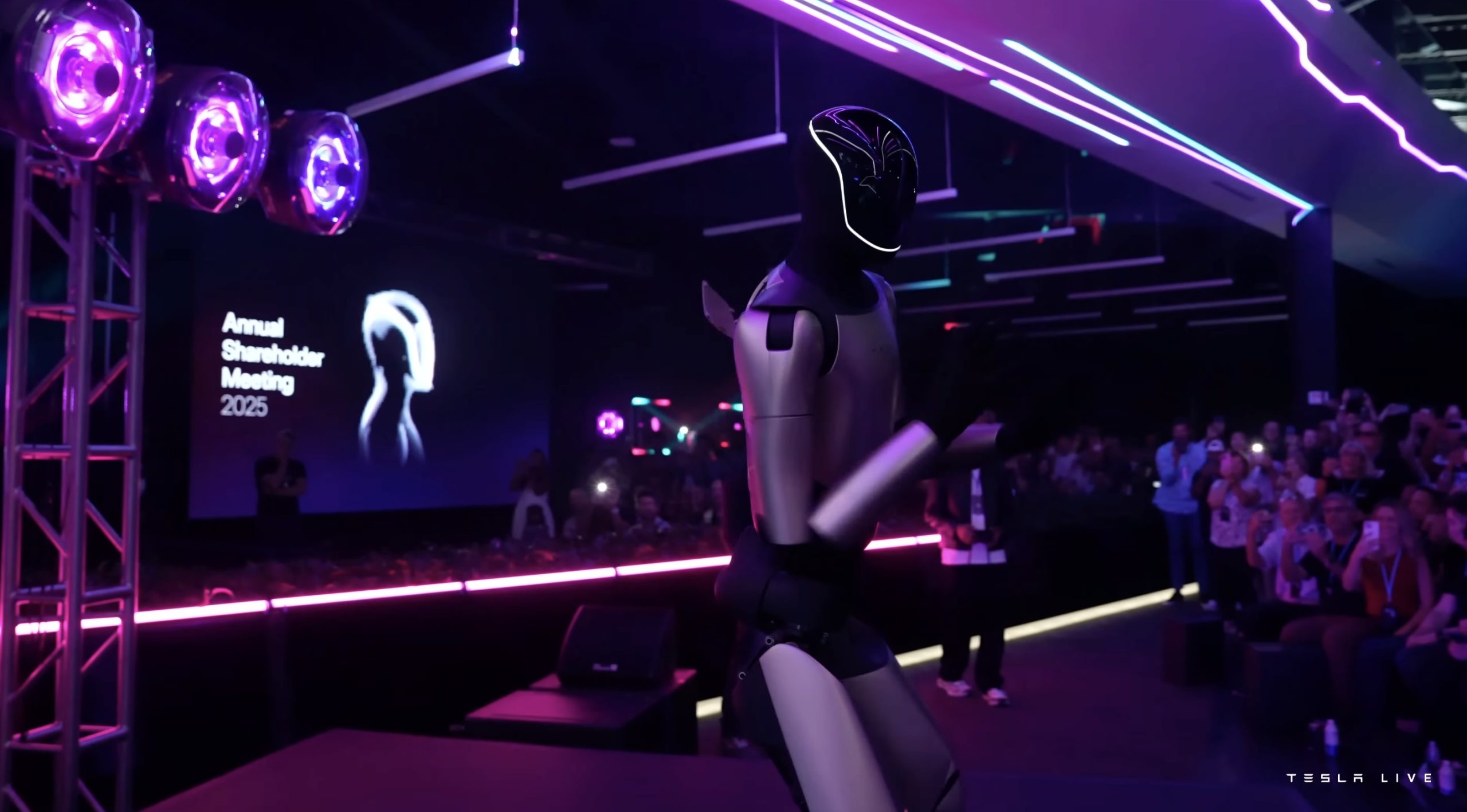
Elon Musk predicted that Tesla could become one of the developers of Artificial General Intelligence (AGI) in humanoid form. Musk’s statement was shared in a post on social media platform X.
In his post, Musk stated that “Tesla will be one of the companies to make AGI and probably the first to make it in humanoid/atom-shaping form.”
The comment comes as Tesla expands development of its Optimus humanoid robot.
During Tesla’s Q4 earnings report, Elon Musk stated that production of the Model S and Model X would be phased out at its Fremont, California, facility. The vehicles’ production line will then be converted to a pilot line for Optimus. Tesla is looking to produce 1 million units of the humanoid robots annually to start.
Musk has previously stated that Optimus could eventually function as a von Neumann probe. The concept, proposed by mathematician John von Neumann, describes a machine capable of replicating itself using planetary resources and sending those replicas to other worlds.
Optimus would likely only be able to achieve this potential if it manages to achieve Artificial General Intelligence.
Other leaders in the AI sector have also expressed strong expectations about AGI’s potential. Demis Hassabis, CEO of Google DeepMind, recently spoke about the technology at the India AI Impact Summit 2026, as noted in a Benzinga report.
“It’s going to be something like ten times the impact of the Industrial Revolution, but happening at ten times the speed,” Hassabis said.
Elon Musk’s recent comments about Tesla producing a product with AGI could hint at further collaboration among his companies. So far, Tesla is actively pursuing autonomous driving, but it is xAI that is pursuing AGI with its Grok program.
Considering that Elon Musk mentioned a Tesla humanoid product with AGI, it appears that an Optimus robot running xAI’s AI models could become a reality.
xAI had recently merged with SpaceX, though reports suggest that Elon Musk is also considering an even bigger merger for all his companies, including Tesla.
